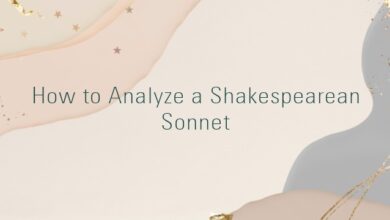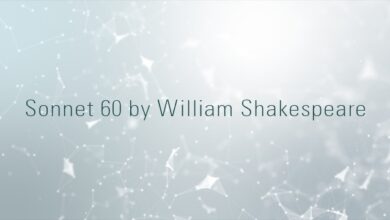
William Shakespeare – Sonnet 48
How careful was I when I took my way,
Each trifle under truest bars to thrust,
That to my use it might unused stay
From hands of falsehood, in sure wards of trust!
But thou, to whom my jewels trifles are,
Most worthy comfort, now my greatest grief,
Thou best of dearest, and mine only care,
Art left the prey of every vulgar thief.
Thee have I not locked up in any chest,
Save where thou art not, though I feel thou art,
Within the gentle closure of my breast,
From whence at pleasure thou mayst come and part;
And even thence thou wilt be stol’n I fear,
For truth proves thievish for a prize so dear.
The poet now begins to agonise once more over the vulnerability of himself and the youth. While he is away, every passer by might be tempted by the youth’s beauty to steal him away from the poet’s heart. Though he has taken great care to protect his possessions, he cannot do the same for the one possession that is dearer to him than all other – the youth whom he loves.
The youth’s beauty is sufficient to tempt even the saintliest person to theft. The sense of helplessness grows as the poem proceeds, and it is augmented by the following sonnets: 49, which deals with the ultimate loss of love; 50 and 51, which describe a necessary journey away from the beloved, and the agonies which ensue.
The 1609 Quarto Version
HOw careful was I when I tooke my way,
Each trifle vnder trueſt barres to thruſt,
That to my vſe it might vn-vſed ſtay
From hands of falſehood,in ſure wards of truſt ?
But thou,to whom my iewels trifles are,
Moſt worthy comfort,now my greateſt griefe,
Thou beſt of deereſt,and mine onely care,
Art left the prey of euery vulgar theefe.
Thee haue I not lockt vp in any cheſt,
Saue where thou art not,though I feele thou art,
Within the gentle cloſure of my breſt,
From whence at pleaſure thou maiſt come and part,
And euen thence thou wilt be ſtolne I feare,
For truth prooues theeuiſh for a prize ſo deare.
Commentary
1. How careful was I when I took my way,When I took my way = when I started on my journey, when I set off.2. Each trifle under truest bars to thrust,Each trifle = each trifling object.
Under truest bars = behind secure bars, safely locked away. True in the sense of reliable, trustworthy.3. That to my use it might unused stayThat to my use = So that it (they) might be available to me for future use.
it might unused stay – i.e. not taken and used by others;
stay/ From hands etc. – remain far away from4. From hands of falsehood, in sure wards of trust!hands of falsehood – thieving hands, untrustworthy persons; sure wards of trust = secure storage places. wards is suggestive not only of guardianship and prisons, but also the wards of a lock, the gates which allow only the correct key to be inserted.5. But thou, to whom my jewels trifles are,to whom = in comparison with whom. Jewel was often used by Shakespeare as a term of endearment for a lover (or a potential lover), as in MW.III.3.36-7.
Have I caught thee, my heavenly jewel? Why now let me die, for I have lived long enough6. Most worthy comfort, now my greatest grief,Most worthy comfort – two probable meanings: you who are my greatest and most valuable source of joy and pleasure; you who are most deserving of comfort and joy.
now mygreatest grief – my greatest source of grief (because of the danger you are in of being stolen from me).7. Thou best of dearest, and mine only care,Thou best of dearest = You, who are the best of all things that are dear to me. See also 39: When thou art all the better part of me and the note thereon.
care = source of concern or grief. From Latin carus = dear, precious. Note also the echo of careful in line 1.8. Art left the prey of every vulgar thief.You are abandoned as a potential target for every common thief. Vulgar was usually associated with the mob and the lower classes. See Sonn38, line 4 and the note.9. Thee have I not locked up in any chest,I have not locked you up in any chest. chest = box or coffer for storage of valuables; or breast, bosom, heart.10. Save where thou art not, though I feel thou art,Save = except.
where thou art not = where you are not physically present.11. Within the gentle closure of my breast,
closure = enclosure. The word suggests an enfolding within one’s arms. Shakespeare uses it four times, the same phrase being employed in VA 781-2
Lest the deceiving harmony should run
Into the quiet closure of my breast;12. From whence at pleasure thou mayst come and part;From whence – from which part (my breast);
at pleasure thou mayst come and part = you may come and go as it pleases you. part = depart.13. And even thence thou wilt be stol’n I fear,even thence = even from there, from that safe place.
14. For truth proves thievish for a prize so dear.truth – truth itself; those who are essentially truthful and honest; proves = turns out to be, is found to be;
dear = valuable, desirable, cherished.





